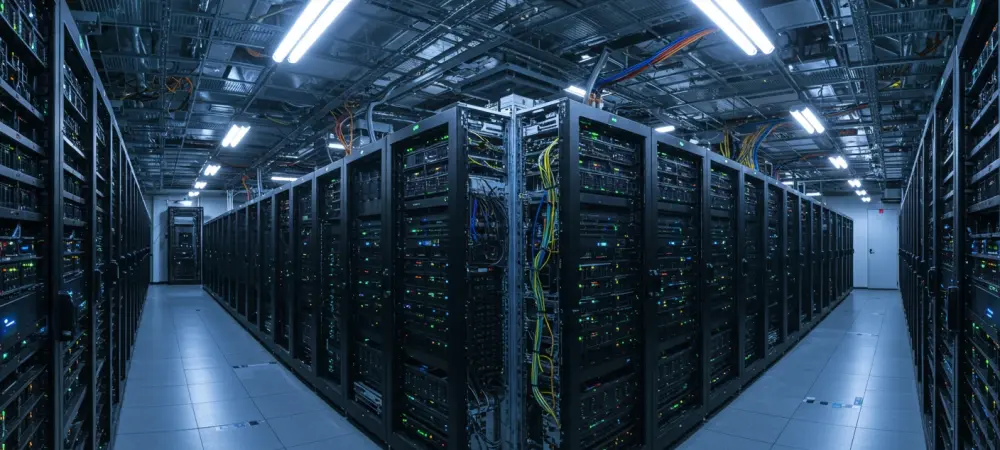Dominic Jainy is an IT professional whose deep expertise in artificial intelligence, machine learning, and blockchain technology allows him to explore advanced applications across multiple industries. Given his interest in innovative solutions, he offers a unique perspective on the transformative potential of new energy storage technologies within data centers.
Could you explain the role of batteries in data centers and why they are crucial for operations?
Batteries are vital for data centers because they provide backup power in case of an outage, ensuring that critical IT systems remain operational. They store energy through Uninterruptible Power Supply devices, which is essential to maintain uptime—a key focus for any data center. Furthermore, batteries offer the possibility to capture renewable energy generated during peak times and reuse it, enhancing sustainability.
How have lithium-ion batteries traditionally served data centers, and what are the main drawbacks associated with them?
Lithium-ion batteries have been the cornerstone of energy storage in data centers due to their ability to keep costs relatively low while offering scalability. However, they can cause environmental issues through mining, have a tendency to degrade over time, and pose fire hazards when overheated. These drawbacks have restricted their potential for sustainable energy solutions.
What environmental and safety concerns arise from using lithium-ion batteries?
Mining for lithium is environmentally damaging as it disrupts ecosystems and generates hazardous waste, which can leach into the surroundings if not properly managed. Additionally, the disposal of these batteries can lead to further environmental harm. From a safety standpoint, they can explode under high temperatures, presenting significant fire risks.
How do geopolitical factors impact the reliance on lithium-ion batteries for data centers?
Geopolitically, dependence on lithium-ion batteries primarily sourced from limited regions like China creates vulnerability for businesses. If trade restrictions were imposed, or geopolitical tensions rise, the availability and costs of these crucial materials could fluctuate dramatically, impacting supply chains for data centers reliant on imported lithium.
What are organic flow batteries, and how do they differ from lithium-ion batteries in terms of composition and environmental impact?
Organic flow batteries use organic materials, rather than mined metals like lithium. This eliminates the environmental damage caused by mining and ensures that most of the materials degrade naturally, reducing the ecological footprint. The shift from toxic to more benign components offers a substantial improvement in sustainability.
What challenges currently limit the widespread adoption of organic flow batteries in data centers?
While promising, organic flow batteries face challenges concerning cost and capacity limitations. They are expensive to produce, and the rate at which they discharge energy is slower compared to other battery types. Overcoming these barriers is essential for their adoption on a larger scale within the industry.
How do organic flow batteries address the fire-hazard risks associated with lithium-ion batteries?
Organic flow batteries mitigate fire risks by using materials that are not prone to overheating or exploding. With reduced risk of thermal runaway, they offer a safer alternative for energy storage in environments that are particularly vulnerable to fire hazards, such as data centers.
Can you elaborate on how organic flow batteries could enhance data center sustainability, particularly concerning renewable energy?
These batteries have the potential to store excess renewable energy—like solar or wind power—when generated under optimal conditions. This stored power can then be utilized during downtime, reducing reliance on non-renewable energy sources and fostering a more sustainable operation model for data centers.
How have technological advancements helped overcome the limitations of organic flow batteries?
Innovations have led to improvements in organic material synthesis, boosting the efficiency of these batteries and making them more cost-effective. Enhanced manufacturing processes are also addressing their energy density and discharge rate issues, positioning them as viable contenders for widespread data center use.
Could you share details about the recent deployment of organic flow batteries in a Wyoming data center and its implications for the industry?
The deployment in Wyoming is a pioneering moment as it sets a precedent for the feasibility of organic flow battery technology in data centers. If successful, this could trigger broader industry acceptance and investment, marking a shift toward more sustainable energy storage solutions.
What makes organic flow batteries potentially more sustainable and cost-effective in the long run compared to lithium-ion batteries?
While initially costlier, organic flow batteries offer more extended lifespans with minimal degradation. Coupled with a smaller environmental footprint, they provide long-term sustainability advantages. As production scales up and technology advances, costs are anticipated to reduce, rendering them more economically viable over time.
How do organic flow batteries help mitigate the environmental harm associated with mining?
By eliminating the need for mined metals, these batteries circumvent the ecological disruption and waste production of traditional battery technologies. Using organic compounds reduces environmental harm, paving the way for eco-friendly energy solutions.
In what ways could organic flow batteries change data centers’ reliance on “dirty” energy sources during operational downtimes?
These batteries enable data centers to store renewable energy and deploy it during peak demand times or downtimes, thus reducing reliance on fossil fuels. This capability transforms energy management practices, potentially leading to data centers achieving year-round operation on clean energy.
Are there any specific partnerships or innovations driving the development of organic flow battery technology for data centers?
Collaborations between research institutions and data center operators are crucial, as they drive technological advancements and scalability. Innovations in material sciences and chemistry enhance the performance attributes of organic flow batteries, promoting their development and integration into energy strategies.
How do you see the future of data center energy storage evolving with the introduction of organic flow batteries?
Organic flow batteries promise to reshape energy storage in data centers by offering a balanced combination of sustainability, safety, and efficiency. As technology advances and adoption grows, they could significantly influence the sector’s transition towards greener operations, setting new standards for energy efficiency and environmental stewardship.

